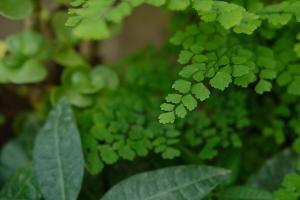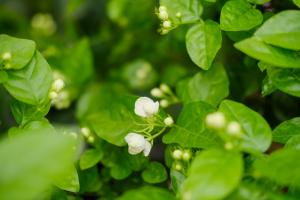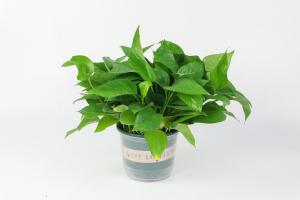Introduction
Tomatoes are a popular plant grown in home gardens and commercial farms alike. They are easy to grow, produce delicious fruit, and offer a variety of health benefits. However, sometimes tomato plants fail to set fruit, leaving gardeners frustrated and confused as to why. In this article, we will explore some of the common reasons why tomato plants fail to set fruit, and how you can avoid these issues in your own garden.
Improper Pollination
One of the main reasons why tomato plants fail to set fruit is improper pollination. Tomatoes are a self-pollinating plant, meaning they contain both male and female reproductive parts. However, they still rely on wind or pollinators such as bees and butterflies to transfer pollen from the male parts to the female parts. If the weather is too cold or damp, or if there are no pollinators present, the flowers may not be properly pollinated, resulting in no fruit set. You can avoid this issue by providing wind protection or hand-pollinating the flowers with a soft paintbrush or cotton swab.
Extreme Temperatures
Tomatoes are a warm-season crop and require warm temperatures to grow and produce fruit. However, extreme heat or cold can cause the plants to drop flowers or fruit. If the temperatures are too hot, the flowers may not open, and if the temperatures are too cold, the flowers may drop off before setting fruit. You can avoid this issue by planting your tomatoes in a location that receives morning sun and afternoon shade, and by providing shade during the hottest parts of the day. You can also cover the plants with a protective blanket or plastic sheeting during cold snaps.
Over-Fertilization
Over-fertilization is another common reason why tomato plants fail to set fruit. Too much nitrogen in the soil can result in lush green growth, but at the expense of fruit production. This is because the plant puts all its energy into foliage growth rather than producing fruit. You can avoid this issue by using a balanced fertilizer and following the recommended application rates. It's also a good idea to perform a soil test before planting to determine the nutrient levels in your soil.
Water Stress
Tomatoes require consistent moisture to grow and produce fruit. Too much or too little water can cause the plants to drop flowers or fruit. If the soil is too dry, the plant will redirect its energy to root growth rather than producing fruit. On the other hand, if the soil is too wet, the roots may become waterlogged and unable to absorb nutrients, resulting in stunted growth and fruit production. You can avoid this issue by watering your plants deeply and consistently, and by using mulch to retain moisture in the soil.
Insect Damage
Insects such as aphids, whiteflies, and spider mites can cause damage to tomato plants, resulting in decreased fruit production. If the plant is under stress from insect damage, it may drop flowers or fruit as a defense mechanism. You can avoid this issue by regularly inspecting your plants for signs of insect damage and treating them with an appropriate insecticide or beneficial insects such as ladybugs or lacewings.
Disease
Tomatoes are susceptible to a variety of diseases such as blossom end rot, blight, and wilt. These diseases can cause flowers to drop off or fruit to rot prematurely. You can avoid this issue by selecting disease-resistant varieties, practicing crop rotation, and maintaining good sanitation practices in your garden. If you notice signs of disease in your plants, remove and dispose of the affected plant material immediately.
Conclusion
Tomatoes are a delicious and nutritious addition to any garden or farm, but they require careful attention to ensure healthy growth and fruit production. By understanding some of the common reasons why tomato plants fail to set fruit and taking steps to avoid these issues, you can enjoy a bountiful harvest of ripe, juicy tomatoes all season long.

 how many times do yo...
how many times do yo... how many planted tre...
how many planted tre... how many pine trees ...
how many pine trees ... how many pecan trees...
how many pecan trees... how many plants comp...
how many plants comp... how many plants can ...
how many plants can ... how many plants and ...
how many plants and ... how many pepper plan...
how many pepper plan...































